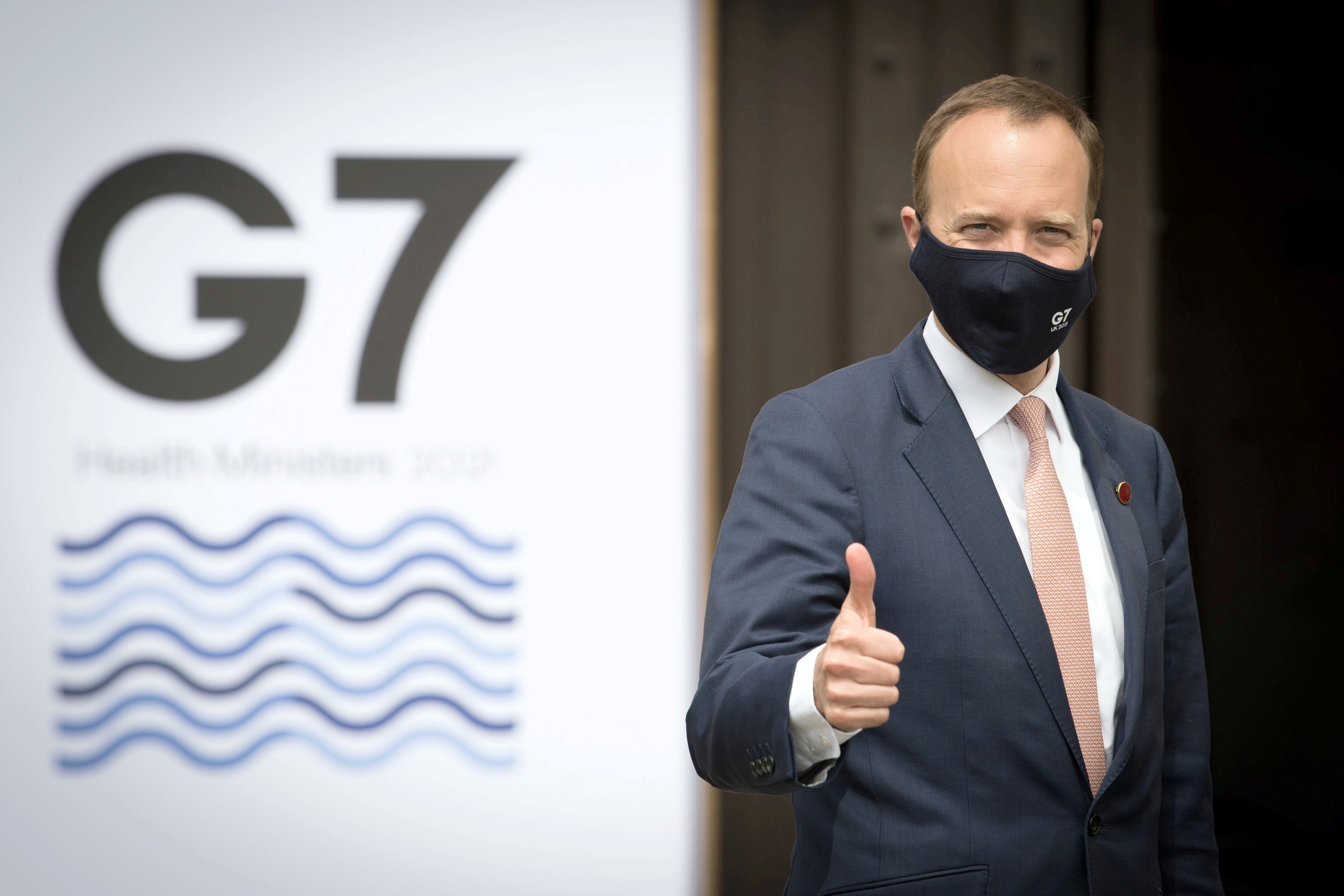G7 countries agree to work on ‘mutual recognition’ of vaccine passports
NHS Covid-19 app now allows people to view their vaccination status

Health ministers from the G7 nations have agreed to work on “mutual recognition” of vaccine passports to help global travel and commerce deal with Covid-19, health secretary Matt Hancock said on Friday.
Ministers from Canada, France, Germany, Italy, Japan, the UK and the US said they were committed to working “towards a process of mutual acceptance of Covid-19 certificates”.
The agreement was reached following a two-day summit in Oxford as part of the G7 meeting.
“We are committed to work as G7 countries towards a process of mutual acceptance of Covid-19 certificates,” said a statement after the meeting.
Ministers also agreed on a new charter that will bring about standardised evidence and data from international trials.
It is hoped that new agreements will mean better collaboration and diversity on large-scale international trials, and speed up access to approved treatments and vaccines.
The ministers agreed they must work together to develop international standards and recommended practices “for the creation, use and mutual recognition of testing and vaccination certificates across countries that rely on safe, effective and rigorously reviewed vaccines”.
Mr Hancock said ahead of the G7 meeting: “Being able to certify that you’ve had a vaccine is going to be necessary for international travel because some countries have already set out that they require proof that you’ve been vaccinated, and that means being able to prove with authority that you’ve had one of the jabs and confidence in which jab is accepted for that proof - which is a matter for each individual country.”
But he said that “when it comes to using certification for domestic purposes, that is the review that Michael Gove is leading, and we’ll come forward with the conclusions of it soon”.
The agreement came after the NHS app was updated to allow members of the public to view their vaccination status.
But plans for the use of Covid-19 domestic passports as a legal requirement for entry to large events this summer are set to be dropped, according to a recent report.
It had previously been suggested that entry to large events could be granted by presenting proof of a Covid vaccination, a recent negative test or a positive antibody test for the virus.
However officials working on the ongoing Covid-19 status certification review do not believe that the law will be changed to mandate their use in the UK, with one government source claiming that the plans were “dead”, The Telegraph reported.
Although proof of vaccination has been accepted as a possible requirement for international travel, the use of Covid-19 passports domestically is a controversial issue that poses significant legal and ethical questions.
In April, the Equality and Human Rights Commission reportedly told the Cabinet Office that Covid status certificates or vaccines passports could be discriminatory as they risked creating a “two-tier society” in the UK.
Advocates for the idea have argued that Covid status certificates could be used to open up the economy while preventing coronavirus outbreaks.
In response to The Telegraph’s report, a government spokesperson said: “The Covid status certification review is ongoing and no final decisions have been taken yet. The Chancellor of the Duchy of Lancaster will update parliament after recess.”
Additional reporting by PA
Join our commenting forum
Join thought-provoking conversations, follow other Independent readers and see their replies
Comments
Bookmark popover
Removed from bookmarks